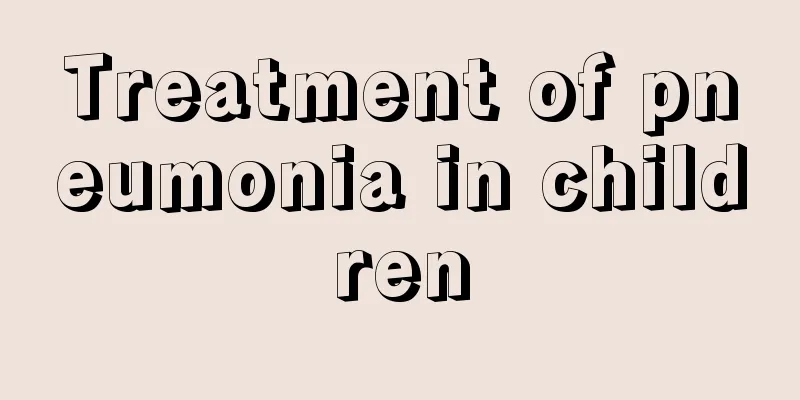What department should I go to if my child has nose bleeding?

|
Nose bleeding is a very common problem and one that should not be taken lightly. This is because many reasons can cause nose bleeding, and as long as the nose bleeds, it means that there are certain problems with your health. Of course, after a child's nose bleeds, if the parents do not know the cause, they need to take the child to the hospital for treatment in time. However, many people don’t know which department to go to if their child has nose bleeding. Which department should a child go to if he has a nosebleed? It depends on what causes the child's nosebleed. If it is caused by rhinitis, then see an ENT department; if it is caused by trauma, then go to the trauma department; if the cause is not clear, you can go to the pediatric department. Next, let’s understand the reasons why children have nosebleeds. 1. Nosebleeds are prone to occur when the nasal mucosa is dry, the capillaries are dilated, there is nasal inflammation or irritation, such as various rhinitis, sinusitis, nasal tuberculosis, nasal syphilis, nasal trauma, deviated nasal septum, nasal foreign bodies or nasal tumors. 2. Poor climatic conditions, such as dry air, heat, low air pressure, cold weather, and high room temperature can cause nosebleeds. 3. Some children have the bad habit of picking their noses with their hands. When the nasal mucosa is dry, it is easy to pick their noses and cause bleeding. 4. Bad habits such as being picky about food, eating a partial diet, and not eating vegetables can also cause nosebleeds due to vitamin deficiency. 5. External injury is a major cause of nosebleeds in children. Children are active and naughty, and may accidentally bump into hard objects, which may cause nosebleeds. Also, children should be educated not to pick their noses casually, as picking their noses may damage the nasal mucosa, leading to nosebleeds. 6. Nasal mucosal erosion, nasal septum deviation, etc. This is the most common cause. It is recommended to go to the ENT department for examination and diagnosis. 7. If there is a decrease in platelets in the blood, it is recommended to check the routine blood test. It may be a complication of other diseases. Parents should not take it lightly. At the same time, certain systemic diseases such as fever, hypertension, arteriosclerosis, leukemia, thrombocytopenic purpura, aplastic anemia, etc. can also cause nosebleeds. |
<<: Mild tricuspid regurgitation in children
>>: What to do if a child has spots on his nose
Recommend
Clinical manifestations of gastroenteritis in children
We all know that children's physical resistan...
What can children eat when they have a cold and cough?
It is very common for children to catch a cold an...
What are the symptoms and treatment of infantile dysentery?
Infant dysentery is a common disease in infancy. ...
Can babies eat ginseng?
Ginseng is a well-known health-care herb that is ...
What medicine should I use to remove scars from burns on children?
Most children are naughty in life, so parents sho...
What to do if your one-year-old baby has diarrhea
The body of a one-year-old baby is in the stage o...
What are the complications of nephrotic syndrome in children?
Nephrotic syndrome in children is one of the kidn...
What is the method of pediatric massage for wind-heat cold
We all know that there are many treatments for wi...
What are the reasons for children's bedwetting? Which type does your child belong to?
Children often wet the bed, which worries parents...
What's wrong with children's tinnitus?
Children's ability to endure pain is far lowe...
Why does my baby keep sneezing recently?
Sneezing is a very common problem in life. Becaus...
Can zinc deficiency in children cause anemia?
Children's growth requires a variety of nutri...
What should I do if my child has a fever and wants to vomit but can't?
Because children have lower resistance, they are ...
What should I do if my child swallows gum?
Children's physical development is not yet co...
What should I do if my three-year-old child still cannot speak clearly?
When children grow to a certain stage, different ...









